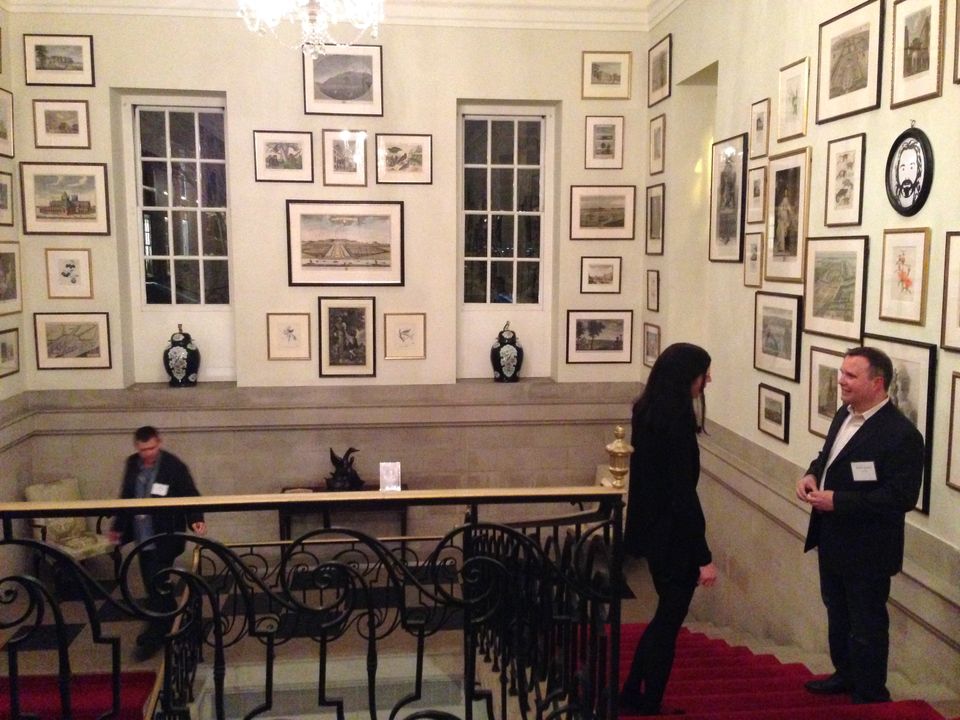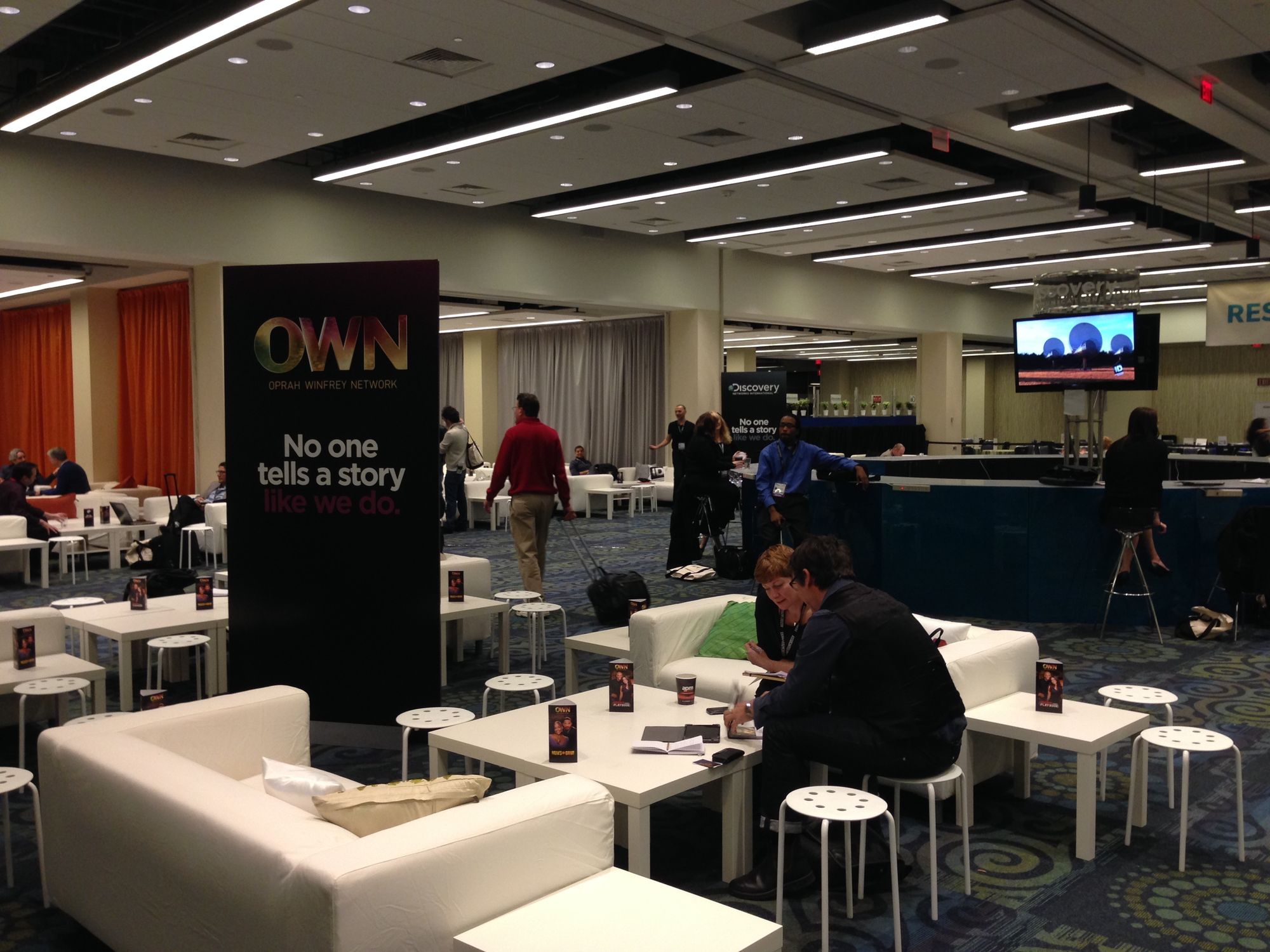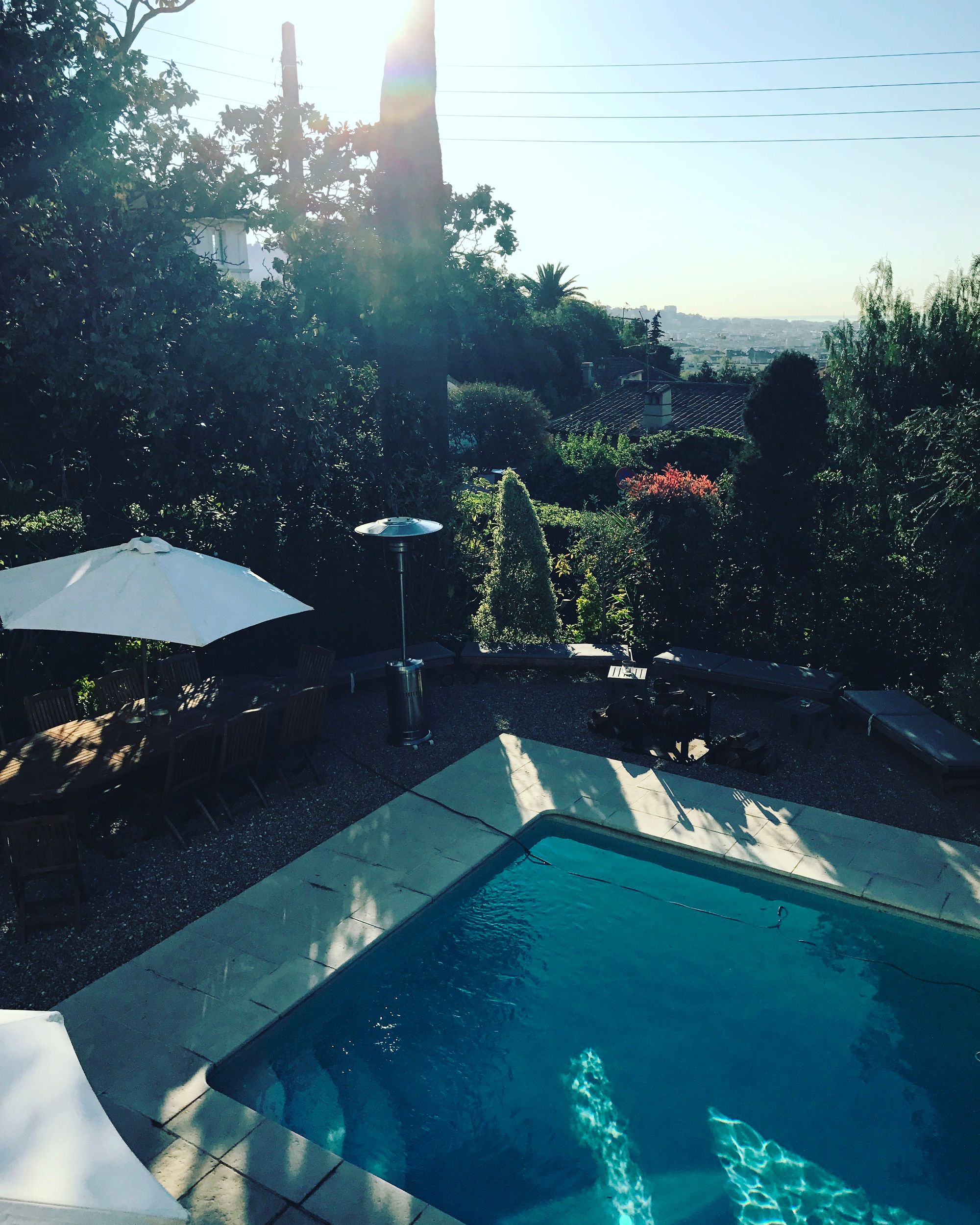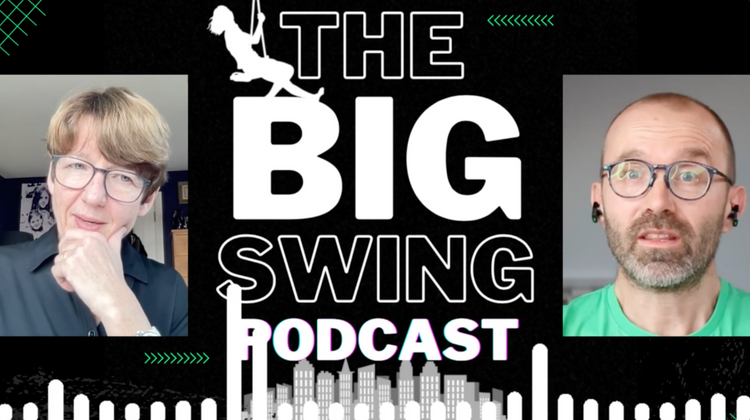Stop pitching, and start winning! 8 ways to drive spectacular new business

For many, 'sales' is a dirty word. It conjures up visions of silver-tongued, slimy characters, desperate to flog you something crappy for a fortune.
When I first set out to build my business, the idea that selling and distributing my work was going to dominate the next couple of decades of my career would have probably put me off entrepreneurship entirely.
I was completely focused on finessing my content - the service and product I wanted to bring into the world. I had no interest in harassing busy people.
But, to succeed, you must sell what you do to your customers, be they viewers, platforms, companies or even voters.
I soon decided that as the founder of my firm, the best person to sell our wares was me.
So, I spent many years on the road, booking (or trying to book) meetings with buyers at trade fairs around the world. From Tokyo to Sheffield, New York to New Orleans, Cannes to Hollywood, I hustled hundreds of buyers, in back-to-back, 30 minute pitching sprints.

At TV markets, there were legendary stories of bidding wars to secure the top shows, tales of network bosses sitting in hotel suites furiously battling to snag the best titles.
I was permanently jet-lagged as I pushed my latest projects under the noses of dozens of weary customers-in-waiting.
This felt like the best way to make progress. Surely, dazzled by their brilliance, these buyers would snap up my shows immediately?
Well, no.
Arriving back in London after yet another exhausting sales trip to America, I asked a top TV buyer for a major US cable network how many shows his team had bought at the annual Realscreen conference that had just happened.
"None", he replied.
I was gobsmacked. There were probably 10 buyers from his network, who would have each held at least 50 meetings across four days with different producers and distributors.
500+ meetings ostensibly spent buying shows, for zero actual transactions. What a waste!
Our conversation was a great opportunity for me to look behind the scenes, into the buyers' mindset.
He explained that his colleagues were much more interested in being seen to show up and collaborate with producers than they were to actually buy shows.
And they wanted to know what was being pitched, to ensure they hadn't missed anything their boss might ask them about.
Most 'buyers' didn't even actually have the authority to buy.
Although the realisation that I was unlikely to sell shows at these events was hard to process, I decided to stay positive and change my approach.
I skipped several markets whilst figuring out how to pivot.
I knew these trips were great for building trust with clients and competitors, for publicising our shows and brand, and for making important human connections. These are all vital in a high ticket price business.
I needed to start afresh, and rebuild our strategy to align with what the buyers really wanted, rather than what I wanted to sell.
So, against my instincts, and despite a desperate need for new business, all of a sudden, I stopped pitching shows.
I started meeting people just to see how they were, to find out what they were working on, and to discuss broad industry trends.
And guess what? All of a sudden, they loved meeting with me. They were sick and tired of being pitched. Now they could relax and have a nice discussion without fear.
We hung out. I threw pool parties. I built up trust and affinity with them.

Before long, instead of avoiding me, buyers were contacting me to find out what we were working on. The confidence I displayed by not pitching them meant they were genuinely interested in what we might be doing.
The result? A spectacular transformation in our fortunes. Before long, we sold a lot more shows.
I should have learned that lesson from early in my career.
When I worked in newspapers back in the early 2000s, it was my job to license photography from agencies and photographers.
When I then went and started a photographic agency, I was quickly successful.
I already thought about how the buyers thought. I had played their role. I knew what would make them happy. They trusted me. And they knew I had the content that would excite their editors, making them look good.
They used to call me every morning, keen to buy our great photography.
Contrary to what some marketing agencies would like you to believe, people who buy for a living don't simply sit around waiting for cold calls or spam emails.
They spend most of their time out hunting for what it is they want to buy.
Most of them want to be proactive, to make a difference, to be the person who saved the day by snapping up the perfect product, signing a partnership with the best supplier or negotiating the ideal contract.
They think - correctly - that most things people want to sell are unlikely to be of any use. So, buyers usually just avoid sellers and focus on proactively buying what they want from people and companies they trust.
And the thing buyers hate more than anything? The idea that they might miss out on that game-changing purchase.
Their worst nightmare was that hit show that slipped through their fingers.
Great sellers ensure their products feel slightly out of their buyers' reach.
The best example of this in recent years is fashion's Supreme. They created an incredible demand for their product by ensuring it felt scarce.
Teenagers queued around the block, waiting for hours to pay hundreds of dollars for a simple sweater with their ubiquitous logo on the front.
The marketing was mostly word of mouth from their best friends, all desperate to buy one of the almost impossible to buy sweaters.
If you are keen to grow, the best type of sale is the one where the customer comes to you.
You are then in control of the situation. You set the terms, you set the pace, you set the price. Bingo!
But how do you make that happen, I hear you cry?
Nobody has heard of us, hardly anyone visits our website, we must do something to grow even more....
These are all things I have said out loud more than once.
Well, here's the deal:
It requires changing your mindset from thinking like a seller to thinking like a buyer. And the secret of great sales is to create FOMO.
This subtle change in dynamics is transformative.
Your customers must be desperate to work with you. They must covet the product you are offering.
They must worry that they could lose out to a competitor. They must decide that your product is a must-have, not a nice-to-have.
And these feelings must outweigh any fear associated with doing the deal.
So here are the eight ways I learned to attract buyers:
- Understand your buyers needs intimately - listen as carefully and often as you can to find out exactly what they want. There is no point trying to sell things that aren't fit for purpose, however cool you think they are. If you have multiple customers, try to figure out how you align what you make so that it works for as many of them as possible. The centre of the marketplace Venn diagram gives you the best chance of good uptake.
- Build trust and personal relationships with buyers over time - Never, ever sell when you first meet in person. Find out what they really care about outside work. Discover if they have a family. What hobbies they have. How they like to travel. Anything that might offer you a shared interest, or show that you are personally interested in them, rather than interested in their money.
- Create unique, standout things for buyers, not for you - Many people make the mistake of building products and services that they are in love with, before they think about how their buyers might feel about them. They also pitch far too many products of questionable value to the buyer. To make your customers part with their hard-earned cash, you have to delight them, which means focussing on them, not you. It means creating one, must-have product, not 20 meh products. And ensure you are aiming far higher than your competitors. Go for at least a 9/10 buying opportunity. Most people struggle to create products that are better than 4/10.
- Have people find out about your product through secondary means - you want your customers to come across your work almost by accident, so they feel in control. That means no cold calls, no email lists, no advertising in trade magazines. Use great publicists. Make sure all your friends know about your super exciting new project, and encourage them to tell others about it too.
- Reverse the buyer's risk assessment - flip the fear, so that NOT buying your show is a higher risk than ignoring it. This is the key to winning new business.
- Work over the medium term - no matter how desperate you are for new business, you need to be relaxed, even indifferent. It is so much easier to buy from someone that you think is going to make the show or deliver the product regardless of whether or not you buy from them.
- Create a competitive market - FOMO goes into overdrive if there is verified competition to buy your product. Many sellers are fear motivated. That's why some auctions, NFT sales and soccer player transfers are prone to sky-high prices. Ensure you address the whole marketplace with your opportunity. If more than one buyer is determined to purchase at the same time, you will get the highest possible price.
- Leverage scarcity - we live in a world where people expect to buy things in a flash, using a single click. 24/7 availability is a very safe and secure feeling for a buyer. But the opposite is a salesperson's dream. If there is only a limited supply, buyers have to scramble to ensure they don't miss out. So make your product appear scarce, and if buyers want it, you will drive demand.
I knew I had created a sustainable business when it felt like I was surfing a wave of new business demand.
Opportunities were presented to us, rather than us having to go and hustle to find them.
This took a long time to get right, and I made so many mistakes along the road.
But if you build trust over time with your customers, and ensure they don't want to miss out on your next product drop, you will be perfectly set.
My advice? Stop pitching, and start winning.




